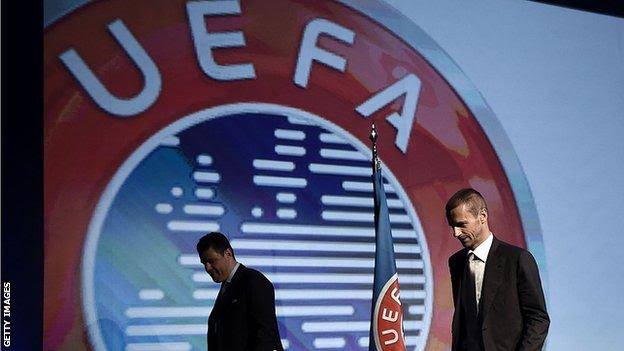UEFA has implemented new financial sustainability regulations that limit teams’ wage, transfer, and agent fees to 70% of their total earnings. Wages payment is going increasingly high and it’s putting clubs at financial risk. As a result, UEFA has agreed to help clubs limit their financial risk by limiting how much they can pay players and they must have reserves in the bank.

Over a three-year period, allowed losses increased from 30 million euros (£24.98 million) to 60 million euros (£49.96 million).
Clubs will have three years to adopt the new rules after they take effect in June.”Breach will result in pre-defined financial penalties and sporting sanctions,” according to Uefa.
New enhanced penalties, including point deductions, relegation to lower-level competitions, and potential removal from European football entirely, are expected to be implemented as part of the new regulations.
Clubs will be able to spend 90 percent of their revenue in 2023-24, then 80 percent in 2024-25, and 70 percent the following year.
Uefa and the influential European Clubs Association (ECA) collaborated on the new “financial sustainability regulations,” which “are the first major change” of the 2010 financial fair play (FFP) rules.
“The first financial regulations implemented by European football’s regulatory body in 2010 served their basic aim,” stated Aleksander Ceferin, head of the governing body.
“They aided in the recovery of European football’s finances and revolutionized the management of European football clubs.”
However, the evolution of the football industry, together with the pandemic’s unavoidable financial consequences, has demonstrated the necessity for comprehensive reform and new financial sustainability regulations.

“These [new] laws will assist us in protecting the game and preparing it for any potential future shocks, as well as encouraging prudent investments and ensuring the game’s long-term viability.”
Uefa noted in a statement: “While the allowable deviation has increased from 30 million euros to 60 million euros in three years, the standards for ensuring fair value in transactions, improving the clubs’ balance sheet, and reducing indebtedness have been significantly enhanced.”
The introduction of a squad cost rule, which will offer improved cost management in regard to player pay and transfer expenses, will be the most significant change in the new regulations.
“The rule prohibits clubs from spending more than 70% of their revenue on wages, transfers, and agent fees.”
What are the current rules for the FFP?
Currently, teams can spend up to 5 million euros more per three-year assessment period than they make. They can, however, exceed this limit up to a maximum of 30 million euros provided the cost is totally paid by a direct donation or payment from the club’s owner(s) or an associated entity.
The goal, according to Uefa, was to “avoid the accumulation of unsustainable debt.”
For clubs that infringe these criteria, Uefa has a long list of potential penalties, ranging from a warning to the loss of European titles. After breaking Uefa’s FFP guidelines in 2020, Wolves were fined 200k euros and given a 23-man roster restriction instead of the regular 25.
However, Uefa thought the rules needed to be altered due to the financial impact of Covd-19, which has cost European top-flight teams £7 billion.
There had been talking about putting in place a real salary cap, but that concept has since been shelved.









